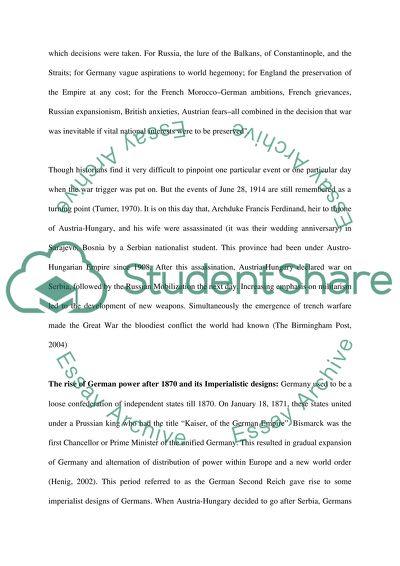Cite this document
(“The First World War Essay Example | Topics and Well Written Essays - 2500 words”, n.d.)
The First World War Essay Example | Topics and Well Written Essays - 2500 words. Retrieved from https://studentshare.org/history/1507003-the-first-world-war
The First World War Essay Example | Topics and Well Written Essays - 2500 words. Retrieved from https://studentshare.org/history/1507003-the-first-world-war
(The First World War Essay Example | Topics and Well Written Essays - 2500 Words)
The First World War Essay Example | Topics and Well Written Essays - 2500 Words. https://studentshare.org/history/1507003-the-first-world-war.
The First World War Essay Example | Topics and Well Written Essays - 2500 Words. https://studentshare.org/history/1507003-the-first-world-war.
“The First World War Essay Example | Topics and Well Written Essays - 2500 Words”, n.d. https://studentshare.org/history/1507003-the-first-world-war.


